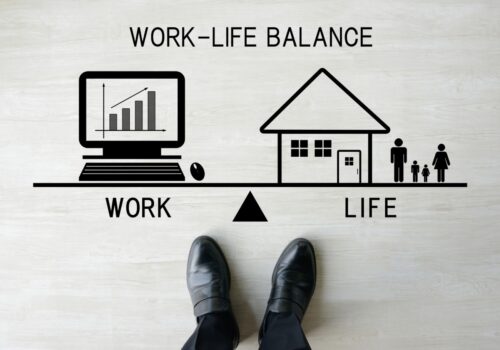The narrative of the postgraduate hustle has been one that has followed a familiar structure for decades. Graduates complete their degree of choice, find a stable job that applies the skills gained from the degree, and work within the industry for years until they can retire and lead a life of leisure. But, for Gen Z, this familiar script is changing, and they are redefining what it means to be a graduate. The “Great Grad Job Quit” is the coined term for the phenomenon that is taking place amongst the graduation generations. But what does this mean, and what has led Gen Z’ers to go against the status quo?
From economic struggles to access to once unobtainable resources, Gen Z has had enough with the structure set in place by the system. They are going against the grain, and taking a completely different direction to opportunities their degrees would have initially presented. In this article, we will explore what may have caused this shift. Is it simply a generation of job hoppers, or are we witnessing a restructure to educational systems as we know it? Take a look at the following points:
Redefining Success
Economies around the world have been in ruin since the COVID-19 pandemic. With the cost of living at an all-time high, increases in living wages have not been amended coherently to match costs. With this, graduate employers have also been reluctant to offer higher starting wages for students looking to get started in the industry of their choice. Understandably, Gen Z’ers are tired, so they are looking towards more holistic definitions for success to balance their quality of life with their standard of living. Traditional markers such as climbing the corporate ladder hold much less weight with the expected financial struggle. Take a look at what Gen Z is looking to balance:
- Meaningful Work: Gen Z are looking for a sense of purpose in their work. After witnessing their parents and friends suffer financially over the Covid 19 pandemic, they have had first-hand experience seeing how futile a career can be. You can give your all to an employer, yet if economic ruin strikes, they have to do what is necessary to cut expenses. For this reason, Gen Z are looking for a balance of financial security and purpose in their careers, as opposed to chasing an unfilling and unreliable corporate ladder.
- Work-Life Balance: Although Gen Z has been a large catalyst to the ‘hustle’ culture, the majority of them favour a work-life balance above everything else. They want to work to live, not live to work. Sacrificing their mental and physical health for a job is not on the cards for Gen Z, especially for employers who refuse to be flexible during these times of change.
- Growth Opportunities: Although Gen Z does not prioritise climbing the corporate ladder, they are seeking opportunities to expand their growth and knowledge. As the first generation has had access to more information than any generation before them, they are looking for a career that supports them in expanding their skill sets.
The Remote Revolution
The normalisation of remote working has been a game changer for Gen-Z, offering the opportunity for zero commuting, and the flexibility to work from just about anywhere. Companies that have welcomed the criteria for graduate workers have been pleasantly surprised by the work ethic and employee satisfaction rates associated with flexible working arrangements. Of course, with employee fairness, staff members of all age groups are reaping the rewards from working from home, and finding much more spare time to live their life as they please, as opposed to being a slave to the morning commute! In a recent study, an estimated 78% of employees stated that their work-life balance had improved, ultimately proving the added value of this non-negotiable for their chosen careers.
How Businesses Can Adapt
Here’s how companies can adjust to resonate with Gen Z’s priorities:
Offer Competitive Compensation and Benefits
Financial security remains a top concern for Gen Z graduates, with the largest dated quantity of student debt. Competitive salaries with the potential to increase earnings with benefits and frequent pay rises are essential to attract the best talent Gen Z has to offer.
Embrace Flexible Work Models
Forget flexible working as a perk. Working at home and flexibility are necessities for most Gen Z’s. Companies that understand employees’ home life situations and can tailor working hours around this will attract the best talent.
Cultivate a Culture of Purpose and Growth
Help employees connect their work to a larger purpose. Invest in opportunities for professional development, create clear career paths, and provide mentorship programs to empower Gen Z employees to grow within the company. For example, trainee solicitors working for investment fraud lawyers may wish to upskill themselves into trading scam recovery. Companies that listen to the desired career path of Gen Z employees will get optimal performance from them.
Prioritise Well-being
Promote initiatives that focus on employee mental and physical health. This can include offering employee wellness programs, encouraging breaks, and fostering a company culture that respects personal time.
Bottom Line
This transition requires a two-way street. While businesses need to adapt, Gen Z graduates should also be prepared to invest in their continuous learning and adaptability. Flexibility goes both ways. With open communication and a willingness to meet each other halfway, companies and Gen Z can create a future of work that benefits everyone.
















